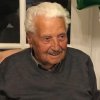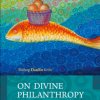He was a faithful, family man, who was proud of his Serbian roots, but also believed in and achieved the American Dream. Nickola was born on March 20, 1930 in Drazevac, Serbia, Yugoslavia. As a preteen he moved to Belgrade where he completed his education and graduated from the Geodetic College and then worked for the Yugoslavian, Republic Geodetic authority, in Serbia, for four years. In 1956 he accepted a job in Austria and worked for the Austrian Department of Geodetic Authority, for 6 months while he continued his quest to find his father who was missing in action since WWII. From Vienna, Nickola immigrated to the United States with the help and support of the Serbian National Defense Council.
Nickola lived in Chicago from 1956 to 1961 when he moved to Los Angeles. Upon his move to California, he was employed by the State of California Department of Transportation where he worked as a surveryor and then a Civil Engineer until his retirement in 1995. Nickola was passionate about his work; he continued working independently until the age of 80. In 1962, just three months before his plan to return to Serbia, he became a United States Citizen. Shortly thereafter he met Dragica Jaksic; they were married in October of the same year and raised two children. He was known for being a devoted husband and proud father who stressed the importance of education and hard work to his children. Nikola’s legacy includes volunteering and supporting the Serbian Orthodox Community in Los Angeles, building a church in Serbia and throughout his life opening his home and heart to support many friends and family here and abroad. His hobbies included chess, travel, reading and Serbian poetry. His travels included an Alaskan cruise with his grandchildren, China, S. Korea, Australia, New Zealand and a trip to Russia with a Volga river cruise. Additionally, following retirement he began smoking meat, and became an avid gardener. Nickola developed a reputation for his delicious tomatoes and Serbian Prosciutto. He was proud of his heritage and modelled values of the importance of knowing one’s roots, and learning and retaining many of the beautiful customs of the rich Serbian culture.
In 2014 Nickola was widowed. In 2019, at the age of 89 he remarried.
On September 29, 2021, Nickola V. Todorovich of West Covina, CA, age 91, fell asleep in the Lord after a short, but courageous fight with lung cancer. Nickola was preceded in death by his wife of 52 years Darlene Dragica Todorovich (2014), his brother Vitomir Todorovic (2014) and sister Nikolija ‘Ruza’ Todorovic (2008). He is survived by his daughter Gordana Todorovich Vukotich, son Alexander Todorovich, grandchildren Denis Vukotich, Natasha Todorovich and Nick Todorovich, and by his second wife Bojana Jovic.





